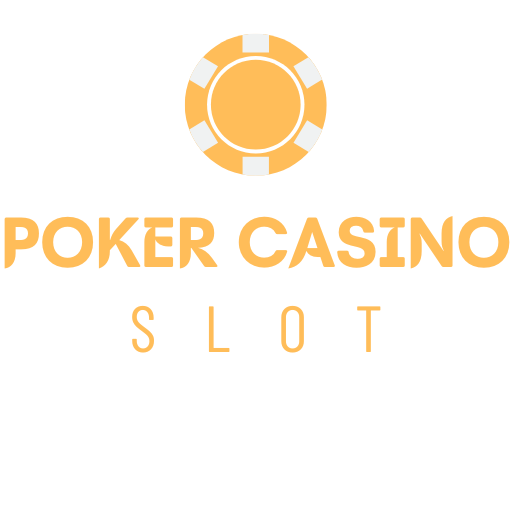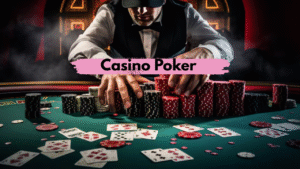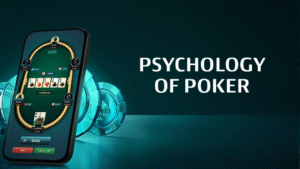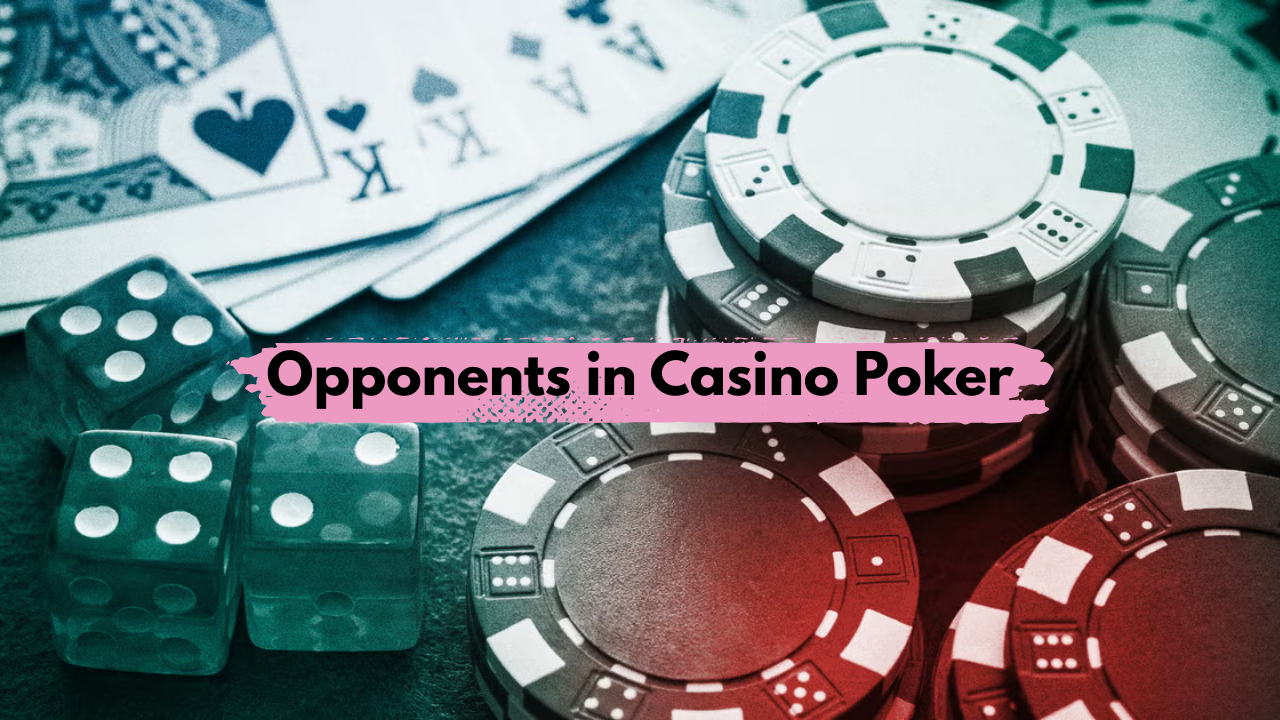
Opponents in Casino Poker does not only concern cards – this is a head battle. The real game is found beyond the painting in the silent war of expressions, gestures and styles of Paris. Maybe you have the expression “play the reader, not the cards”. It is the secret of victory in the poker of the casino.
How do you read your opponents effectively? Let us be able to immerse ourselves in the subtle art of narration, analyze behavior and transform psychology into its greatest weapon at the poker table.
The importance of the opponent
Imagine Opponents in Casino Poker as a conversation without words. Each flea bet, each look, each break – everything says something. If you can interpret these signals, you will receive a massive advantage.
In fact, many professionals argue that reading opponents is more important than the real cards they have. For what? Because even an average hand can become a winner if you know when your opponent is bluff or stops.
Insight on poker “he says”
In the world of Opponents in Casino Poker, a “telling” is an indication of the power or hand mentality of an opponent. This says it can be physical (such as violin or avoiding visual contact) or behavior (such as sudden changes in the game models).
The difficult part? Not everyone says they are clear. Sometimes players use the transmission setbacks and behave strongly when they are weak or weak when seated on a monster hand. Therefore, reading opponents is an art, not a science.
Physical stories at the table
Physical tells the first things that players notice, especially in the poker of the live casino. Here are some currents:
Hands Wappy – Often seen when someone has a very strong hand.
Avoid visual contact – could point out nervousness or an attempted bluff. Sudden silence – When a usual animated player becomes silent, he could hide a big hand.
Protects chips or cards: a subconscious act of monitoring a precious hand.
Of course, expert players know these signs and can falsify them, so always pay attention.
Gambling models speak more than words
If there is one thing that is rarely in Opponents in Casino Poker, it is a game behavior.
Ask yourself: is the player aggressive or passive? Do they constantly bet or change suddenly with acceleration? For example:
A sudden bet after checking several rounds often suggests a bluff.
Small and careful bets can mean that fish for information.
Constant aggression often indicates trust in their hand.
Think of bets like the “body language” of your Opponents in Casino Poker- it reveals much more than they realize.
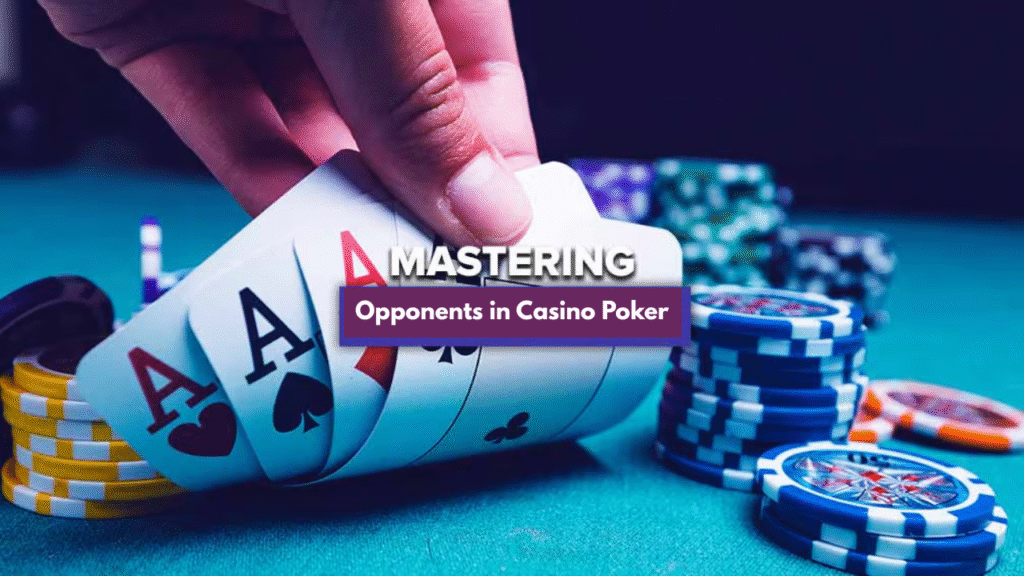
Opponents in Casino Poker
Timpism says: fast decisions against lens
Another underestimated indication is the speed of decisions. Have you ever noticed how some players break immediately, while others stop drastically? Timing can be a golden mine of information:
Fast calls usually mean weak hands: they don’t have to think.
Long breaks followed by a bet can indicate bluffing: they produce courage. Direct increases often show strength: they don’t need extra time to calculate.
But do not forget that intelligent opponents will use the times against you, so always look for the models instead of the promotions of One -ff.
Read emotional states
Opponents in Casino Poker is emotional. Even the best players cannot always mask frustration or excitement. Attentive to:
Incomes: When a player loses control after a bad pace and starts playing unwary. CONSCIOUS – A player who wins a large hand can feel inviolastible which makes him predictable.
Frustration – frequent sighs, flea traits or sarcastic comments generally mean that they are on the edge.
If you can stay calm while others lose your composure, you have already acquired a big advantage.
Matter position and style of play
Not all opponents play the same. Some are of course cautious; Others are exciting researchers.
The identification of types of players helps to read better:
Nearby players (often play, often folded) – respect their bets; You usually have solid cards.
Loose players (almost all hands) – they are not a little afraid; They are often frank.
Aggressive players (big bet, often increase) – take care to expect; They put pressure on the opponents, whatever the thickness of the hand.
Passive players (rarely increase, often call) – they only show force if they are forced.
Recognition of these trends helps you predict future movements.
Bluff recognition: recognize the false
The bluff is the soul of Opponents in Casino Poker. But how do you get one? Here are some classic bluff indicators:
Excessive dramatic behavior, like too much to speak or pretend, to look relaxed.
Large uncertain chips – Styles from Paris Awakening without reason.
Forced visual contact, as if they would try too much to seem confident. The trick is not jumping on a single clue, but observing the reasons on several hands.
Adjust your table image
Reading the opponents is powerful, but don’t forget: to you too! Smart players constantly observe your behavior. That’s why mixing your style of play is essential.
For example, if you have often folded, try bluffs in the next round: they overwhelm them. If you are always aggressive, slowly play a strong hand to catch them. Think like a chess game in which you change your movements before they were waiting for them.
Exercise makes it perfect
Nobody becomes a teacher in reading the opponents at night. It costs observation, patience and countless hours at the table. Start in a small one: focus on a player at the same time, follow their habits and try your theories.
After a while your instinct is sharpened. You will start to notice details that others are missing, almost like a sixth sense of the poker table.
Read More: How to Master Casino Poker Bluffing Techniques
Conclusion
Opponents in Casino Poker is more than cards and tokens – it is a psychological duel. If you control the reading of the opponents, you have control, whether you recognize cliffs, recognize the Paris models or if you stay calm while others break under pressure.
Essentially, poker concerns humans, not only on the hands. Mastery of observation art makes the difference between an average player and a real poker shark.
